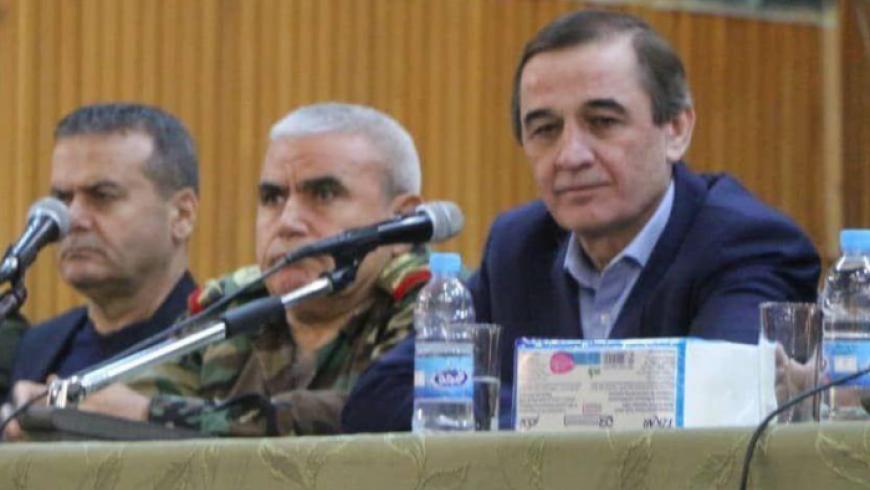Against the aspirations of the Syrian regime, the very Syrians whose inner fire the regime believed it had quelled, are now resurging in the north and south. The region that the regime assumed had succumbed to surrender could erupt anew at any given moment. Consequently, the regime finds itself immersed in a state of unexpected political and tactical turmoil. This situation compels both the regime and its allies to meticulously reconsider their approaches and strategies moving forward.
Louqa’s visit to Beirut: Meeting Nasrallah and others
Amidst the unfolding reality in Syria, an intriguing secret visit took place that captured attention. Head of the General Intelligence Service, Hossam Louqa, undertook a discreet trip to Beirut, where he engaged in discussions with prominent figures. Notably, he met with Lebanese Hezbollah Secretary-General Hassan Nasrallah and key figures within the resistance axis. These figures included Lebanese presidential candidate Suleiman Franjieh, among others. According to a diplomatic source cited by Syria TV, Louqa’s discussions with Nasrallah covered various critical topics, with a primary focus on recent developments in Syria and regional relations.
During his meeting with Nasrallah, Louqa addressed several pivotal matters, including the recent visit of a Saudi Arabian security delegation to Damascus. The discussions with regime officials indicated a gradual shift toward normalization between the two nations. Notably, Saudi Arabia expressed concerns about the expansion of Hezbollah’s influence across Syrian territory, as well as the acquisition of land and real estate by the party and affiliated sectarian militias in various areas. This also encompassed the concentration of Shiite groups on the outskirts of Damascus.
Louqa conveyed to Nasrallah the Saudi demand for the release of detainees and a subsequent general amnesty, which Saudi Arabia viewed as a prerequisite for reopening its consular section in Syria. Additionally, concerns arose regarding drug exportation from Syria to other countries, contributing to the Gulf’s apprehension.
Nasrallah, in response, perceived external motivations behind certain movements. He noted Israeli-Jordanian encouragement for activities in the region, and he linked movements in Daraa to American and Jordanian initiatives, financed externally. Nasrallah emphasized the need for resolute action against such external influences, which aimed to shape Syria’s future in alignment with Arab reconstruction conditions.
The discussions also touched upon potential American and Turkish involvement, as the Turks exhibited a shift in attitude towards the Syrian regime. Nasrallah and Louqa acknowledged the possibility of Saudi Arabia supporting Syrian factions to exert further pressure on the regime, prompting negotiations from altered perspectives.
Consequently, both sides recognized the intensification of pressure on Bashar al-Assad, exacerbated by the suspension of US-Syrian negotiations on American hostages and renewed discussions regarding Iran’s nuclear program. Nasrallah identified this as a bid to exploit Russia’s diversion of attention due to the Ukrainian conflict.
As these events unfold, the Syrian regime remains watchful of the situation’s progression, particularly its potential spread to various cities. The regime faces the dilemma of responding to demonstrators with varying degrees of severity, potentially leading to calls for Hezbollah and Iranian military and security support. This could cement the regime’s dependence on Iran and Hezbollah, impacting Arab normalization efforts. Saudi Arabia’s deadline for the regime to demonstrate change looms, and there are apprehensions of Hezbollah deploying fighters on a larger scale, potentially challenging the regime’s control over its forces.
In summary, the secret meeting between Louqa and Nasrallah delved into multifaceted regional dynamics, including Saudi concerns, external influences, and the evolving Syrian landscape. The outcomes of these discussions hold implications for Syria’s future, the balance of power in the region, and the delicate interplay between internal and external forces shaping the country’s trajectory.
This article was translated and edited by The Syrian Observer. The Syrian Observer has not verified the content of this story. Responsibility for the information and views set out in this article lies entirely with the author.


